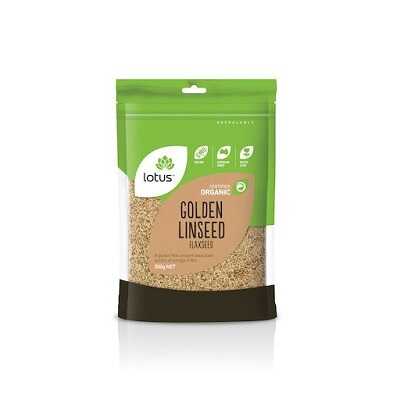Flaxseeds:
 Flaxseeds, also known as linseeds, are small, brown or golden-colored seeds that come from the flax plant (Linum usitatissimum). They have been cultivated for thousands of years and have gained popularity in recent years due to their numerous health benefits.
Flaxseeds, also known as linseeds, are small, brown or golden-colored seeds that come from the flax plant (Linum usitatissimum). They have been cultivated for thousands of years and have gained popularity in recent years due to their numerous health benefits.
Benefits:
Rich in Nutrients: Flaxseeds are a nutritional powerhouse. They are an excellent source of essential nutrients, including dietary fiber, protein, omega-3 fatty acids, vitamins (such as B vitamins and vitamin E), and minerals (such as magnesium, manganese, and phosphorus).
High in Omega-3 Fatty Acids: Flaxseeds are one of the best plant-based sources of alpha-linolenic acid (ALA), a type of omega-3 fatty acid. Omega-3s are known for their anti-inflammatory properties and potential benefits for heart and brain health.
Heart Health: Consuming flaxseeds may help lower the risk of heart disease. The omega-3 fatty acids in flaxseeds can reduce blood pressure, lower bad cholesterol levels, and reduce the risk of blood clots.
Digestive Health: Flaxseeds are an excellent source of soluble and insoluble fiber, which can aid in digestion and promote regular bowel movements. The fiber content also helps in maintaining a feeling of fullness, which can assist in weight management.
Anti-Inflammatory: The omega-3 fatty acids and lignans found in flaxseeds have anti-inflammatory properties that may benefit people with conditions like arthritis and other inflammatory disorders.
Antioxidant Properties: Flaxseeds contain lignans, which are natural antioxidants. These compounds may help protect cells from oxidative damage and reduce the risk of chronic diseases.
Hormonal Balance: Some studies suggest that lignans in flaxseeds may help balance hormones, particularly in women. They may alleviate symptoms of menopause and support breast health.
Weight Management: The combination of fiber and healthy fats in flaxseeds can help control appetite and contribute to weight management by promoting a feeling of fullness.
Skin and Hair Health: The omega-3 fatty acids and antioxidants in flaxseeds may contribute to healthier skin and hair by reducing inflammation and protecting against damage from free radicals.
Easy to Incorporate: Flaxseeds can be easily added to your diet. You can sprinkle them on cereals, yogurt, salads, or blend them into smoothies. Ground flaxseeds are often preferred as they are easier to digest and absorb.
It’s important to note that flaxseeds are best consumed ground or as flaxseed oil to fully access their nutritional benefits because the outer shell of the seed is hard and difficult to digest. Flaxseeds are derived from the flax plant (Linum usitatissimum), which has been cultivated for its seeds and fiber for thousands of years. Flaxseeds are primarily grown in regions with cool and temperate climates.
Sources of flaxseeds:
North America: Canada and the northern United States, particularly states like North Dakota, Montana, and South Dakota, are significant producers of flaxseeds. Canadian flax is often considered among the best quality in the world.
Europe: European countries like Russia, Kazakhstan, and France also grow flaxseeds. French flax, in particular, is renowned for its quality and is used in high-end textiles like linen.
Asia: Flaxseeds are grown in countries like India and China. In India, flaxseeds are commonly used in traditional cooking and are known as “alsi.”
South America: Countries like Argentina are emerging as flaxseed producers.
Australia: Flaxseeds are also available and popular in Australia. They can be found in various grocery stores, health food stores, and online retailers throughout the country. Australians have recognized the nutritional benefits of flaxseeds, and as a result, they are relatively easy to source.
Flaxseeds are typically harvested in late summer when the plants  have matured, and the seed pods have ripened. The seeds are then separated from the plant and processed for various uses, including food products, flaxseed oil, and dietary supplements.
have matured, and the seed pods have ripened. The seeds are then separated from the plant and processed for various uses, including food products, flaxseed oil, and dietary supplements.
When purchasing flaxseeds, you can find them in various forms:
Whole Flaxseeds: These are the whole, unprocessed seeds. They have a hard outer shell, and their nutrients are best accessed when they are ground before consumption.
Ground Flaxseeds: Ground flaxseeds, also known as flaxseed meal, are more convenient for consumption and are often preferred for their easy digestibility. You can purchase them pre-ground or grind them at home using a coffee grinder.
Flaxseed Oil: Flaxseed oil is extracted from flaxseeds and is used as a dietary supplement. It’s rich in omega-3 fatty acids and is available in liquid or capsule form.
When buying flaxseeds, look for products that are labeled as fresh, well-sealed, and stored in a cool, dark place to maintain their nutritional quality. Ground flaxseeds can go rancid more quickly than whole seeds, so it’s a good idea to store them in the refrigerator or freezer if you plan to keep them for an extended period.
Additionally, if you have any medical conditions or are taking medications, it’s advisable to consult with a healthcare professional before making significant dietary changes or adding new supplements to your diet.
Plant based Oils and seeds:
Vitamins:
Other beneficial natural products:
